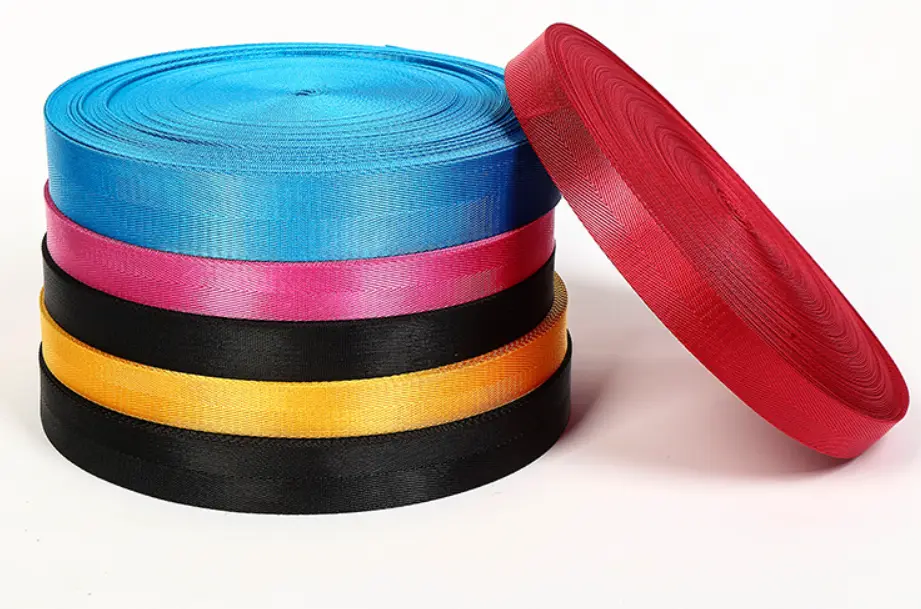In the textile engineering world, Nylon Webbing is defined by one critical characteristic: Energy Absorption. Unlike Polyester, which is static, Nylon behaves like a shock absorber. When an engineer specifies webbing for climbing harnesses, vehicle recovery straps, or fall arrest lanyards, they choose Nylon not just for its strength, but for its elasticity.
However, "Nylon" is a broad term. For B2B buyers, the real choice is often between Nylon 6 and Nylon 66. This guide breaks down the technical differences and applications.
1. The Chemistry: Nylon 6 vs. Nylon 66
Choosing the correct polymer variant is crucial for product performance. TMG manufactures both.
Nylon 6 (The "Soft" Choice)
- Properties: Lower melting point (220°C), softer hand feel, excellent dye affinity (colors appear brighter).
- Best For: Pet collars/leashes, fashion belts, and consumer goods where touch and aesthetics are priority.
Nylon 66 (The "Tough" Choice)
- Properties: Higher melting point (265°C), higher abrasion resistance, tighter molecular structure, lower water absorption than Nylon 6.
- Best For: Mil-Spec gear, friction-heavy applications, industrial safety harnesses.
2. Critical Application: Handling Dynamic Loads
Nylon's ability to stretch 15% to 30% before breaking is its superpower. This is why it is mandatory in:
A. Vehicle Recovery (Snatch Straps)
When pulling a stuck truck out of mud, you need Kinetic Energy. A static polyester strap might snap the tow point due to sudden shock. A Nylon strap stretches, builds up potential energy, and then retracts, "snatching" the vehicle out smoothly.
B. Fall Arrest & Climbing
If a worker falls, the webbing must absorb the impact force (G-force). If the webbing were static (like Kevlar or Dyneema), the shock would be transferred directly to the user's body, causing injury. Nylon elongates to dissipate this energy.
3. Technical Specs Comparison
Use this table to select the right material for your RFQ.
| Property | Nylon 6 | Nylon 66 | Polyester (For Comparison) |
|---|---|---|---|
| Melting Point | 220°C | 265°C | 260°C |
| Abrasion Resistance | Good | Excellent | Good |
| Elongation | High (Shock Absorbing) | High (Shock Absorbing) | Low (Static) |
| UV Resistance | Fair (Needs UV stabilizers) | Fair (Needs UV stabilizers) | Excellent |
| Primary Use | Consumer Goods | Military / Industrial | Cargo Control |
4. Safety Factors: WLL vs. MBS
As a manufacturer, we advise clients to calculate the Safety Factor (SF).
Example: If your Minimum Breaking Strength (MBS) is 10,000 lbs, the Safe Working Load Limit (WLL) for lifting is typically 1:5 (2,000 lbs). TMG provides certified tensile testing reports for every batch.

Nylon 6 or 66? Let Us Help.
Not sure which grade fits your spec? We can send samples of both so you can feel the difference in texture and rigidity. We also offer custom dyeing and UV treatments.
Request Nylon SamplesWhether you are building a rigger's belt or a heavy-duty tow strap, the webbing is the foundation. Contact TMG Webbing for factory-direct Nylon 6 and Nylon 66 manufacturing.
